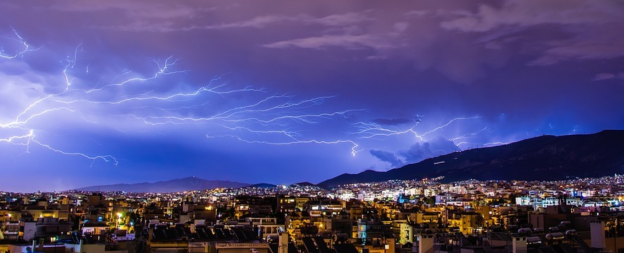Summary
We live in a world where the wicked seem to get away with their evil deeds. Sometimes as we watch, it can seem like God is letting them get away with their wickedness; doing nothing to intervene. To the author of Psalm 10, this apparent distance of God was a key worry and cause for writing.
Psalm 10 presents a lament at the wicked and their evil deeds, and asks God to intervene. It probably serves as a twin to Psalm 9, since both are written in acrostic form (in Hebrew) using different parts of the Hebrew alphabet. The first eleven verses focus on the wicked and their evil, before a plea to God to help his people, and praise for the divine King who will execute judgment over the wicked.
Our passage explained
v1-4
In Psalm 9, the majority of the psalm praised God before asking him to come to his people’s aid. In Psalm 10, the opening focus is on the deeds of the wicked. In verse 1, the author poses a question concerning God’s apparent distance: “Why, O LORD, do you stand far away? Why do you hide yourself in times of trouble?”
The apparent distance of God is a concern because of the wicked who surround God’s people, and commit evil deeds. The arrogant wicked “hotly pursue the poor” and the psalmist wishes that their evil designs would entrap themselves, like a hunter falling into his own trap (v.2).
Instead, “the wicked boasts of the desires of his soul, and the one greedy for gain curses and renounces the LORD” (v.3). The wicked man renounces God, does not seek him but pursues his own desires, and does not acknowledge God’s existence (v.4). His priorities and ethical views are twisted inside-out, focused on self not God.
v5-15
From the perspective of the oppressed, the wicked seem to have it easy. “His ways prosper at all times” while God’s judgments seem irrelevant and distant, and self-trust rather than trust in God is the wicked man’s attitude (vv.5-6). His words express his attitude of deceit, injustice, and oppression (v.7), while in verses 8-10 his actions are described as like a hunter setting an ambush to capture and crush the poor and oppressed. He acts like this because in his heart he does not believe God sees or cares what he does (v.11).
The evil thoughts, words, and deeds of the arrogant wicked man spurs the psalmist to plead with God to help his people. The psalmist asks his Covenant-keeping God and King to “arise … lift up your hand [to intervene]; forget not the afflicted” (v.12). The psalmist asks why the wicked man would “renounce God” and think that God will not bring him to account for his wickedness (v.13), because God sees and notes “mischief and vexation” that he may judge it (v.14). This is because God is a helper of the helpless, and watches over those who need his protection (v.14). For this reason, the psalmist is confident in asking God to “break the arm of the wicked and evildoer; call his wickedness to account till you find none” (v.15).
v16-18
After asking God to help his people, the psalmist concludes with confident praise to the Divine King (mirroring Psalm 9). He describes God as “king forever and ever” who causes evildoer nations to vanish in judgment (v.16, cf. Deut 8:20).
Unlike the wicked who shuts his ears to the poor, God hears “the desire of the afflicted” and strengthens their heart in the midst of trials (v.17). God listens to their and the psalmist’s pleas so that he will bring justice to those who are oppressed, and so that “man who is of the earth may strike terror no more” (v.18).
Our passage applied
As we read these words we can also join with the psalmist in sharing confidence in God’s judgment of the world. God has promised he will judge all the nations who rebel against him through Christ, who he has appointed heir of all things. And Christ himself has already borne the judgment of God for us, to satisfy the penalty for our sins and restore our relationship to God.
This promise is important to hold to in our day, as we see the arrogant wicked do their evil deeds before all men. We watch as they consign the weak and vulnerable to death by inaction, affliction, law and oppression. They prey on the poor and needy, depriving them of their wages and stealing their dignity. The wicked attack the Church, whether it is through marginalisation and ridicule or persecution, because they do not believe God will hold them to account.
While the wicked who do these things may think God does not see, God is noting their mischief and vexation. One day he will shatter the nations and destroy their idols and security, so that they may strike terror no more. God does not hide himself in times of trouble, but is ready to rise up to judge on the day of his return.
Resources
Questions? Please contact us. Inspired? Come and worship with us on Sundays.


